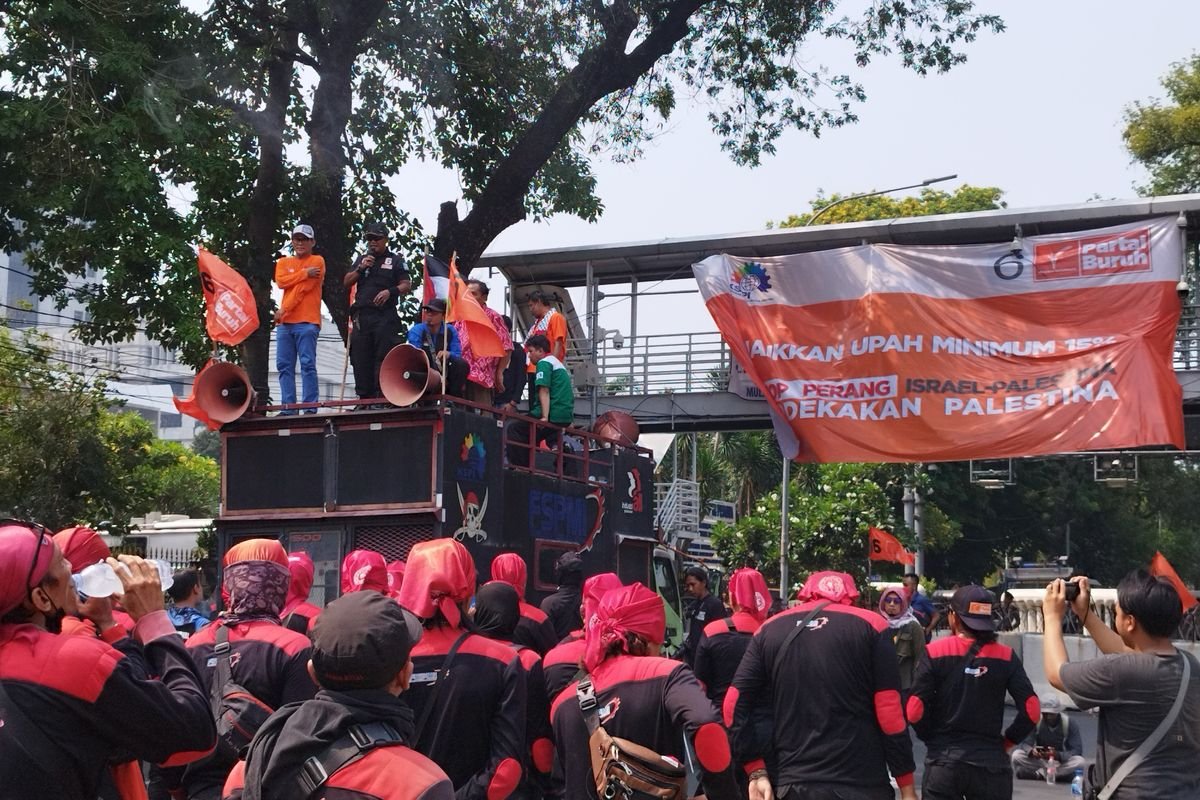HNC— Tens of thousands of Indonesian workers are preparing to take to the streets on August 28, in what unions describe as a nationwide strike to demand fair wages, an end to outsourcing, and stronger tax justice policies.
The strike is expected to draw mass participation across industrial hubs, from Batam and Bekasi to Surabaya and Medan, with the largest rally set to surround the national parliament building in Jakarta. Organizers warn it could become one of the biggest labor demonstrations in recent years, reflecting deep frustration over stagnant wages and rising living costs.
“This is not just about salary increases,” said a spokesperson from the Confederation of Indonesian Trade Unions (KSPI). “Workers are asking for dignity, job security, and fairness in how taxes are applied. Outsourcing practices have stripped many of their basic rights.”
A Nationwide Movement
Unions have been mobilizing for weeks, coordinating buses and community posts to transport workers to Jakarta. Flyers, WhatsApp groups, and social media campaigns under hashtags like #FairWagesNow and #StopOutsourcing have gained traction, signaling that the issue resonates far beyond factory floors.
In addition to calling for a 10 percent wage increase, workers are demanding the government end widespread outsourcing systems, which they argue erode labor protections. Another hot-button issue is tax justice—unions insist corporate elites must be held accountable while ordinary workers continue to shoulder heavy burdens.
Why August 28 Matters
The date was chosen deliberately. Parliament is scheduled to discuss budget priorities for 2026, including policies tied to labor, subsidies, and welfare programs. Labor groups see this as their chance to push lawmakers into action.
Analysts say the strike could test the government’s commitment to balancing investor confidence with protecting worker rights. “Indonesia relies heavily on foreign investment, but ignoring domestic labor concerns risks fueling long-term unrest,” said political observer Arief Santoso.
Echoes Beyond Indonesia
Labor protests are not new in Southeast Asia, but the scale and timing of this movement have drawn attention from global rights groups. International watchdogs have pointed out that wage stagnation in Indonesia mirrors broader inequality trends in emerging economies.
The International Trade Union Confederation (ITUC) has voiced solidarity, calling the August 28 strike “a critical moment for worker justice in one of the world’s fastest-growing economies.”
Government Response
Officials have so far appealed for calm. The Ministry of Manpower said it is open to dialogue but warned that “disruptive protests could harm economic stability.” Police have confirmed they are preparing security measures, with large deployments expected around Jakarta’s parliament complex.
Despite these warnings, workers insist their voices must be heard. “We are tired of empty promises,” said Siti, a garment worker from Tangerang who plans to join the rally. “We don’t want conflict, but we want change.”
What’s Next
As August 28 approaches, both the government and labor unions appear to be in a standoff. Whether the protest escalates into a long-term strike or results in concrete negotiations remains to be seen.
But one thing is clear: Indonesia’s workers are no longer willing to stay silent. The streets of Jakarta will soon become the stage for a showdown over wages, outsourcing, and economic justice.










